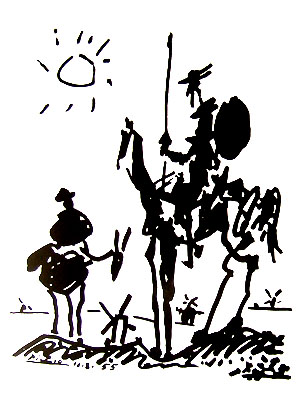Self-Determination
Self-determination occurs in two spheres, the external (interpersonal) and the internal (intrapersonal.) Externally, self-determination is called autonomy. One is autonomous if one acts neither in compliance nor rebellion of the wishes of others, but rather according to one's true wishes. The humanist school in psychology champions achieving good feeling by achieving autonomy. Autonomy is a high level final goal composed of conscious choosing, that presupposes harmony in one's motivation. If this inner harmony is lacking, autonomy is an illusion, because the ego is either complying or rebelling to some internal image.
Internally, the question is not just what a person decides, but his or her relationship to their decision. Deciding with conviction is very different from resentfully acquiescing to 'the least worst' alternative, even if the content of the decision is exactly the same. Choices that determine a 'self' are usually either, 1) intrinsically agreeable, 2) satisfying and energizing after investing a small amount of 'energy of activation' to get going, or 3) emerge from deep yearning and desire.
There is a false dichotomy often experienced in life, that if we cannot make something happen, then we are helpless. Stated another way, the concern is that, if straight-forward use of the will can't bring a good life into being, then free-will doesn't exist, and life is meaningless. This is the illusion of powerlessness. But powerless is not helpless.
Self-determination requires aligning one's beliefs and actions. This is captured in the folk expression, "Say what you mean and mean what you say." In doing this, beliefs may be amended and actions revised but the stuck powerless feeling will dissolve. There is tendency to want to manipulate things 'behind the scenes' in our relationships so that we can get what we want or believe we need without taking any actions that risk rejection. Apart from the question of how successful this ever is (usually not much) there is the plain fact that leaves one with a mushy sense of self and little capacity for contact.
Self-determination is not about micro-managing a life to produce a very specific outcome, that would be 'out-come determination' and many people do try that. No outcome defines a self anyway. Literature is full of tales in which a protagonist changed him- or herself in exactly the opposite way than was sought, by fixing on an outcome and pursuing it without regard to the experience. At the extreme they are known as 'control freaks.' This is based on will and the illusion of control, and while it may succeed in worldly terms in some endeavors, it is exhausting and impoverishing if applied to a life.
In the Reich and Lowen tradition, will power is not seen as the source of betterment, only an emergency mechanism used for survival. But this does not mean that the self cannot through choices bring about the good life. Only the choices are not means to an end, but reasonable acts in themselves, guided by feeling and principle more than image or goal.
Rather, self-determination is about seeking experiences that are likely to bring about the pleasure, satisfaction, intimacy and skills one is desiring. No one experience may really provide much, but as a whole, experience is a guide towards what is good. As a practice, self-determination is about placing one's self "in benefit's way" and having some faith in life and the natural order. As a quality of being, it is more about the natural coherence that arises when choices are guided by feeling more than strategy.
Healthy decisions start with knowing one's desire. There are always other motivators, like obtaining resources for later, avoiding anxiety, good manners, pragmatic exchange, avoiding guilt, revenge, kindness. The key is to find a way of proceeding that furthers, or at least does not do excessive violence to the desire.
